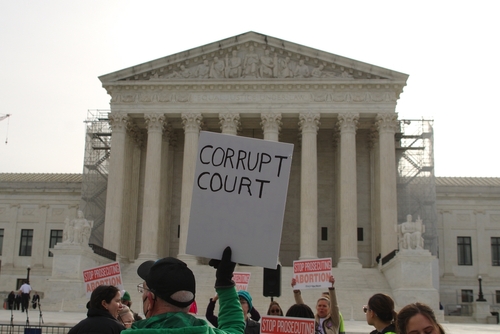
In a significant victory for free speech advocates, the Supreme Court has shown skepticism towards restricting government communications with social media companies, marking a critical stance against potential government overreach. The case in question revolves around the Biden administration's alleged coercion of social media platforms to moderate and censor certain types of content, particularly conservative viewpoints, under the guise of combating misinformation about COVID-19 and the 2020 election.
The lawsuit, spearheaded by Republican attorneys general from Missouri and Louisiana, accuses federal officials of unlawfully suppressing conservative speech on major social media platforms. The plaintiffs argue that the administration's actions violate the First Amendment by effectively turning social media companies into extensions of government censorship machinery. This argument has resonated with several conservative justices who expressed deep concerns about the implications of such government influence.
RIP The First Amendment (1776-2024)
In a 6-3 decision, the Supreme Court ruled that the government *IS* able to pressure Big Tech platforms to remove content.
This won't end well for us pic.twitter.com/ZXJ38wv0mH
— End Wokeness (@EndWokeness) June 26, 2024
During the hearings, Justices Samuel Alito and Amy Coney Barrett highlighted the potential dangers of government coercion. Alito questioned whether such pressure would be tolerated if directed at traditional media like the New York Times, suggesting that the government’s actions would likely be seen as coercive and inappropriate. Barrett echoed these concerns, pointing out the broad implications of the government's influence on social media content.
The Biden administration, however, contends that its interactions with social media platforms were merely persuasive efforts to curb harmful misinformation during a global pandemic. Principal Deputy Solicitor General Brian Fletcher argued that the administration's communications did not amount to coercion but were necessary for public health and safety. This argument has been met with skepticism by the court, particularly given the aggressive nature of some of the communications documented in the case.
The Supreme Court ruled in favor of the Biden admin’s power to influence Big Tech oligarchs.
They've given platforms like Facebook, coerced by the Deep State, the power to decide what speech is "acceptable" instead of protecting the free exchange of ideas.
A very dangerous… pic.twitter.com/lH9qsqbiOu
— Rep. Marjorie Taylor Greene🇺🇸 (@RepMTG) June 26, 2024
The case underscores the ongoing debate about the balance between national security, public health, and free speech. Justice Brett Kavanaugh noted that while government officials often pressure media to withhold certain stories for security reasons, this must be carefully balanced against the rights protected under the First Amendment. Chief Justice John Roberts also pointed out the non-monolithic nature of the government, suggesting that different government entities might counteract each other’s pressure, complicating the plaintiffs' claims of systematic coercion.
This case, Murthy v. Missouri, is expected to have far-reaching implications. A ruling in favor of the plaintiffs could establish significant limitations on the federal government's ability to engage with and influence social media companies, reinforcing the principle that the government should not interfere with private entities' moderation policies. Such a decision would mark a substantial reaffirmation of First Amendment protections against government overreach in the digital age.
The Supreme Court's decision to temporarily block the lower court's injunction against the Biden administration signals the high stakes involved. As the legal battle continues, it serves as a crucial reminder of the need to protect free speech while navigating the complexities of modern digital communication and misinformation.
This case is poised to define the boundaries of government interaction with social media, ensuring that the fundamental rights enshrined in the Constitution are upheld in the face of evolving technological and societal challenges.












Who wrote this headline because what the Supreme Court ruled was totally against free speech and our 1st Amendment. I know Kagan, Sotamayor and Jackson find our Bill of Rights often in the way of government policy as it should be, but what part of “Congress shall make no law respecting an establishment of religion, or prohibiting the free exercise thereof; or abridging the freedom of speech, or of the press;…” don’t Roberts, Kavanaugh and Barrett understand. And I heard this decision was based on standing. BS! I am tired of denying justice based on “standing.” All Americans have standing to file suit in the courts whenever the government violates our Constitutional rights.